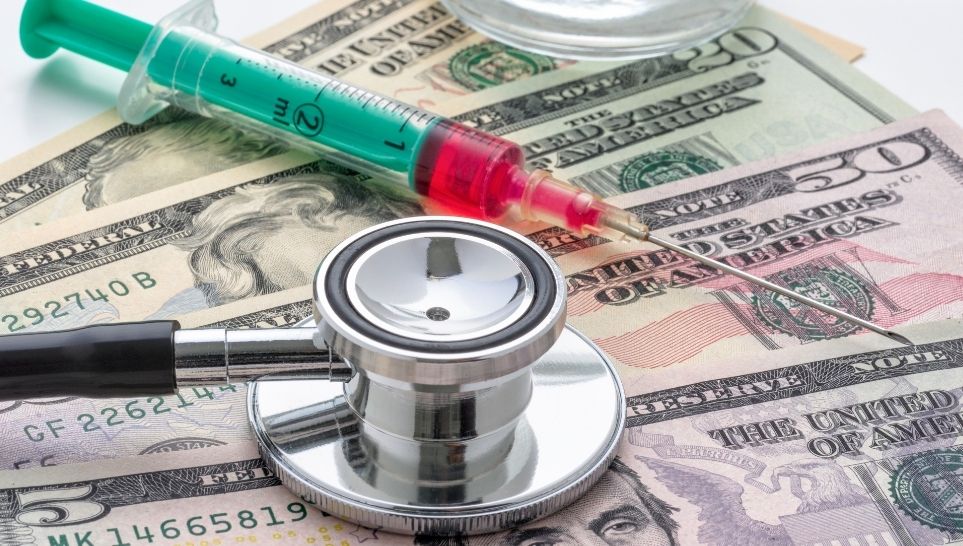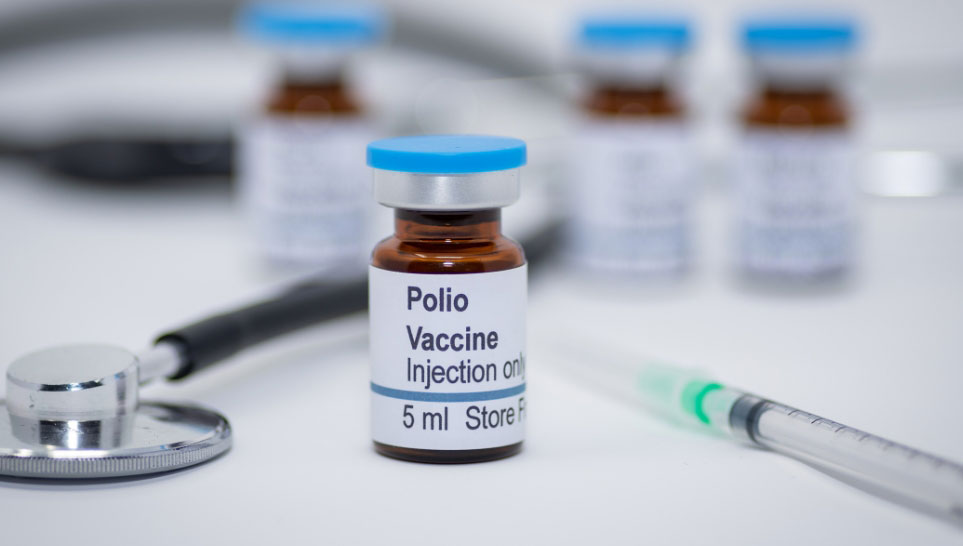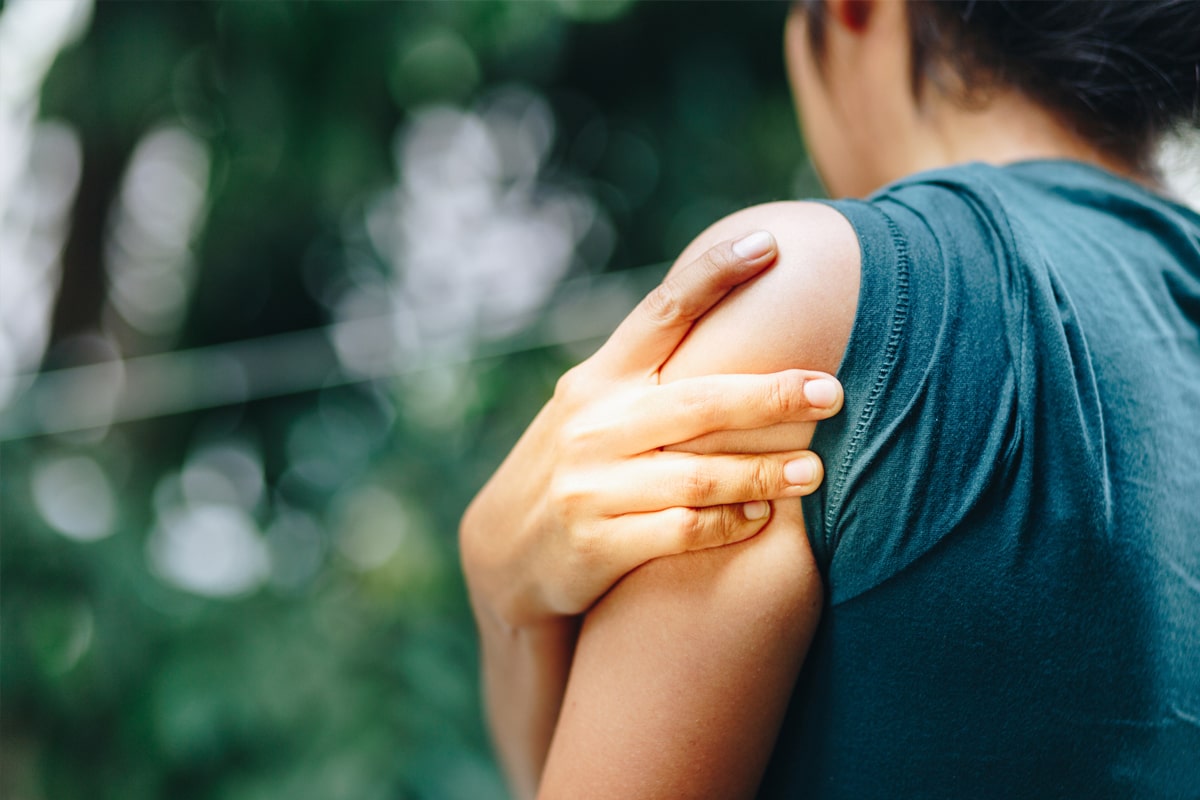
Shoulder injections can cause damage to the shoulder joint resulting in debilitating pain. Vaccine injection can cause this type of damage known as Shoulder Injury Related to Vaccine Administration. Shoulder injury claims are by far the most common claim in the Vaccine Injury Compensation Program.
A shoulder injury can rob you of your life by keeping you from doing the things you love or even earning a living. Imagine if you were doing construction and no longer had use of your left shoulder or if you are a grandparent and can no longer hold your grandbaby. These potentially devastating injuries have far-reaching consequences that go well beyond left shoulder pain. We at Sadaka Law understand these devastating injuries and can help you get the answers you need and recover what you lost.
What is SIRVA?
Most people over the age of 30 have experienced shoulder pain at one point. Shoulder Injury Related to Vaccine Administration, however, is a wound to the upper arm or shoulder caused by a misplaced vaccine injection. Typically, SIRVA happens when the vaccine needle penetrates through the deltoid muscle and into the bursa causing atypical pain. SIRVA is most often caused by vaccines that are injected into the deltoid muscle of the shoulder, such as the influenza vaccination.
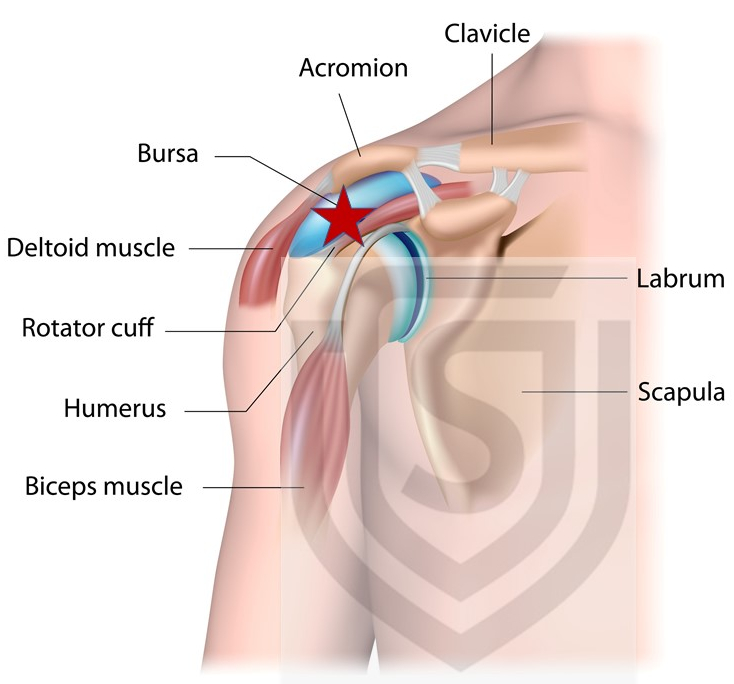
Fig. 1 Injection through the deltoid into the bursa is the most common cause of SIRVA.
As you can see from figure 1 above, the deltoid muscle gets smaller the higher into the shoulder it goes. So, if the vaccine administration is too high in the shoulder then the risk of piercing the deltoid is high. Any intramuscular deltoid injection can cause injury and those related to vaccines are called SIRVA.
What are the symptoms of SIRVA?
The main symptom of SIRVA is persistent shoulder pain that starts within a few days after vaccination that ranges from a dull ache to intense and prolonged pain. The debilitating shoulder pain will often limit your ability to move your arm or range of motion. Most vaccination injections leave patients with temporary pain at the injection site. However, if the discomfort persists days after the injection, it may be a sign of Shoulder Injury Related Vaccine Administration.
Key points about SIRVA shoulder symptoms:
- SIRVA symptoms typically start within 48 hours of a vaccine shot into the deltoid muscle.
- The initial shoulder symptoms are often sudden or persistent shoulder pain that limits your ability to use your arm. Reduced shoulder joint motion is typical of SIRVA.
- SIRVA can lead to permanent shoulder dysfunction.
What about nerve injuries and SIRVA?
There is no doubt that vaccines can cause nerve injury. These nerve injuries can often first present with shoulder symptoms that look like SIRVA. Some nerve injuries include axillary nerve injury and brachial neuritis.
How is SIRVA diagnosed?
Diagnosis begins with a physical examination of your shoulder by a medical professional.
During the exam, they’ll check for:
- Tenderness
- Swelling
- Bruising
- Range of motion problems
Imaging tests, such as an X-ray or MRI, may be ordered to rule out other conditions that can cause shoulder pain. If your doctor suspects a nerve injury, they may order an EMG. An EMG is a test that measures the electrical activity of your muscles and nerves.
You may be diagnosed with SIRVA only based on your shoulder pain with limited range of motion after receiving a vaccine in your shoulder.
Your medical history will also be taken into account. Be sure to tell your doctor about any past vaccine reactions, as well as any family history of shoulder problems. Your doctor will also consider whether you had any prior shoulder injury or prior symptomatic shoulder pain.
SIRVA is often diagnosed by doctors as other shoulder injuries, such as:
- Adhesive capsulitis, also called frozen shoulder, is a shoulder injury that causes stiffness and pain with decreased range of motion.
- Brachial neuritis (Parsonage-Turner Syndrome) is a nerve injury that occurs as inflammation that triggers sudden shoulder pain. Intense pain is followed by weakness or numbness of the affected shoulder or arm. This is a different condition than SIRVA. Click here to learn more about brachial neuritis.
- Bicipital tendonitis is a shoulder inflammation of the biceps tendon. The biceps are the large muscles in the front of your upper arm that help you bend your elbow and rotate your arm.
- Complex regional pain syndrome (CRPS) is a condition that causes severe, ongoing pain. It usually affects one arm or leg. In some cases, both arms or legs may be affected. Complex regional pain syndrome can occur after an injury, surgery, heart attack, or stroke. It may also happen for no known reason.
- Granuloma is one of many injection site vaccine injuries that is poorly understood. In cases of granuloma, the injection results in the formation of a painful knot in the arm.
- Humerus contusion is a bruise of the upper arm bone caused by a direct blow.
- Shoulder impingement syndrome is a shoulder injury that occurs when the shoulder joint is not able to move as freely as it should. The condition is caused by the compression of the soft tissues between the bones in the shoulder joint. The condition can be painful and may limit the range of motion in the shoulder.
- Post-injection inflammatory reaction is a general term for the body’s reaction to an injury or foreign substance. Any time the skin is punctured, there will be some degree of inflammation.
- Radiculopathy is a general term for a nerve that is pinched or compressed.
- Rotator cuff injury happens when the group of muscles and tendons surrounding the shoulder joint becomes damaged or torn. This can cause severe pain and limit mobility in the arm. Rotator cuff tears are usually the result of suffering a SIRVA injury over time causing rotator cuff tendon degeneration.
- Shoulder bursitis occurs when the vaccination punctures the bursa sac. It leads to inflammation, infection, and in extreme cases, sepsis.
- Subacromial bursa effusion is the medical term for shoulder inflammation caused by a vaccine injection.
- Subdeltoid bursitis is the inflammation of the bursa sac between the skin and the Acromion Process, which is the bone at the top of the shoulder.
- Supraspinatus injury is an injury to the rotator cuff muscle that sits on top of the shoulder blade. The muscle attaches the shoulder blade to the upper arm bone.
- Tendonitis causes inflammation of the tissue holding the shoulder muscles and bones together. It can impede the arm’s range of motion and cause severe discomfort.
- Ulnar neuropathy is a type of nerve injury where there are symptoms of numbness or pain below the elbow.
How do you treat SIRVA?
There is no one-size-fits-all answer to this question, as the best way to treat SIRVA will vary depending on the individual case and the severity of the condition.
Common SIRVA treatments
Nonsteroidal anti-inflammatory drugs. Commonly referred to as NSAIDS, these drugs can help to reduce pain and inflammation. There are many examples of NSAIDS, but some of the most common ones are ibuprofen (Advil, Motrin), naproxen (Aleve), and aspirin. These medications can be bought over-the-counter or by prescription, depending on the strength needed. NSAIDS work by reducing inflammation, pain, and fever.
Physical therapy. This can help to reduce pain and improve the range of motion in the affected shoulder. For mild SIRVA cases, the prescribed treatment is two to three sessions of physical therapy over a few months. If physical therapy does not help, a doctor may prescribe corticosteroid injections to decrease the inflammation and pain.
Steroid injections. These can help to reduce inflammation and pain in the short term.
Surgery. In severe cases, surgery may be necessary to repair damaged tissue or remove scar tissue that has formed around the shoulder joint. After the surgery, patients must wear a sling for four to six weeks and may require up to twelve weeks of physical therapy. According to a 2013 report published by the Vaccine Injury Compensation Program, 30% of vaccine-related SIRVA cases require surgery to alleviate shoulder pain. The surgery repairs damage to the bones, bursa, or tendons in the affected area.
Some people recover from SIRVA within six months, while others live with the condition for several years. In the worst cases, the injury causes lifelong damage.
A person that experiences intense, atypical shoulder pain after vaccination should contact their doctor immediately for an examination or a referral to a specialist. Orthopedic surgeons are specialists that can order testing to confirm inflammation, swelling, tearing or fluid collection in the upper arm.
The pain caused by SIRVA can be debilitating, and lifting objects with the affected arm becomes impossible. It hinders a person’s ability to work and earn a living, which is why compensation for treatment and lost wages is essential.
A person suffering from vaccine-related SIRVA should not hesitate to seek legal help. An experienced lawyer can review your case and help you get the compensation you deserve for your injuries.
If you or someone you know has suffered from a shoulder injury related to a vaccine, please contact us today for a free consultation.
Can you prevent SIRVA?
Yes.*
*For the most part
Avoiding shoulder injury related to vaccination begins with the training of the person doing the injection. SIRVA is a vaccine injection injury that mostly comes from poor technique. So, if a vaccine administration is done properly then you significantly reduce the chance of developing SIRVA. The only prevention is properly training the people administering the vaccine.
The CDC offers a full training course on vaccine administration. Here is a video on how to avoid injecting the vaccine too high into the shoulder.
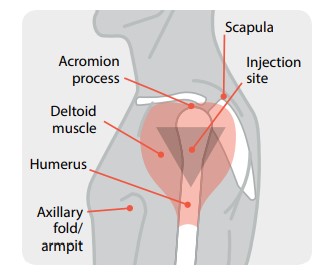
Fig 2. Proper Injection Technique; source: Vaccine Administration: Intramuscular (IM) injections: Adults 19 years of age and older (cdc.gov)
The CDC provides the following guidelines:
- Perform the vaccine administration in the middle and thickest part of the muscle. As can be seen from Fig. 2, the ideal spot to avoid shoulder injury related to vaccination is to inject within the triangle and not at the top.
- Insert the needle at a 90-degree angle.
*NOTE: Some research supports that there is an increased risk of SIRVA injury when the vaccine administrator is standing when giving the injection.
There is no guaranteed way of avoiding shoulder injury related to vaccination, but the risk can be lessened with proper training.
SIRVAs are Increasing because of poor technique.
Data from the Vaccine Adverse Event Reporting System (VAERS) indicates that SIRVA cases in the US are increasing. Claims for SIRVA-related injury are by far the most common claims in the Vaccine Injury Compensation Program. The shoulder injury usually occurs after an injection enters the upper portion of the deltoid muscle and pierces the bursa sac or rotator cuff.
The rotator cuff consists of the muscles and tendons that secure the upper arm bone to the shallow socket of the shoulder. The bursa sac under the deltoid muscle contains the lubricating fluid that minimizes friction between the tissues and bones in the shoulder. Injecting a vaccine into either of these parts of the shoulder may cause short-term mobility issues or permanent range of motion problems in the injected arm.
Do vaccines cause SIRVA?
Yes. The U.S. government recognizes that vaccines can cause SIRVA in the vaccine injury table and any shot given in the shoulder can cause SIRVA. Flu shots are the most common cause of SIRVA at about 70% of cases.
The main reason that the influenza vaccine is the most common cause is that it is the most common vaccine given every year. A second reason that there is a large number of flu shot SIRVA cases is that most people will be injected outside of their doctor’s office by sometimes poorly trained staff.
What other vaccines cause SIRVA?
Other vaccines that the Vaccine Injury Compensation Program (VICP) recognizes as possible causes of SIRVA include:
- Hepatitis A
- Hepatitis B
- Hib (Haemophilus influenza type b)
- Human Papillomavirus (HPV vaccines Gardasil and Ceravix)
- Meningococcal
- MMR (Measles Mumps Rubella) or MMRV (Measles Mumps Rubella Varicella)
- Tdap or DTap (Tetanus, Diphtheria, and Pertussis (whooping cough) containing vaccines)
- Pneumococcal conjugate
- Polio (IPV, OPV)
- Tetanus (T)
- Varicella or Chickenpox
Reaction from Vaccines
Vaccine injuries happen. They are rare, but vaccines are like any other type of medication and can cause injury. The good news is that most people are injected without any issues, but others react to compounds within the vaccine or suffer long-term injuries from misplaced injections. The contents of a vaccine usually do not cause SIRVA, however. It is the inoculation needle entering the wrong part of the shoulder that poses the problem.
If you develop SIRVA after vaccination, and you believe it was the cause, submitting a petition to the VICP is the most effective way to seek compensation.
Note that if the vaccination that caused your SIRVA is not on the Vaccine Injury Table, the VICP may not accept the compensation claim. Feel free to contact our SadakaFirm professionals for more information.
A medical opinion lets you build evidence to support the reparation petition that you will submit to the VICP. Also, contact our SadakaFirm vaccine attorney to explain your rights and financial compensation options.
FAQs
How can I tell if my shoulder pain after a flu shot is SIRVA?
Shoulder injury related to vaccination starts with shoulder pain in or around the injection site. Typically, unlike typical shoulder pain after a vaccine, the symptoms of SIRVA persist and worsen over the days and weeks after vaccination. The severe shoulder pain causes a loss of range of motion in the affected shoulder. This loss of range of motion could cause frozen shoulder or adhesive capsulitis.
If the pain does not abate 48 hours after receiving a shot, it might be a SIRVA symptom.
For an accurate diagnosis, visit a doctor. If an examination and MRI verify that you have vaccine-related SIRVA, contact our vaccine injury lawyers at Sadaka Law to discuss your options.
Can a COVID-19 vaccine cause SIRVA?
Yes. SIRVA happens after an injection needle penetrates the bursa or rotator cuff. SIRVA can result from any wrongly injected vaccine into the upper arm, including COVID-19.
Injuries related to COVID-19 are not compensated through the Vaccine Injury Compensation Program. There is a separate program that compensates people injured by the COVID-19 vaccine called the Countermeasures Program.
The Covid-19 vaccine may be included in the VICP sometime in the future, but, if it is, it will still be a while before the VICP adds COVID-19 vaccines to the Vaccine Injury Table.
How do I prove SIRVA for compensation?
Step 1. REPORT YOUR INJURY TO YOUR DOCTOR AS SOON AS POSSIBLE. If you suspect that your shoulder injury is due to a vaccine shot, report your injury to your physician. Because shoulder injuries are common, reporting new-onset symptoms to your physician as soon as possible becomes a critical issue in SIRVA claims in the VICP. If you have proof that the shoulder injury occurred within 48 hours of the vaccination, the VICP will automatically assume a causal link. So documenting worsening shoulder pain is critical to your case.
Step 2. GET TREATED. To maintain a claim in the VICP you have to either undergo an inpatient hospitalization with surgical intervention or suffered for a minimum of six months of injury.
Step 3. Call Sadaka Law to help you with your SIRVA claim.
Can I file a SIRVA vaccine injury petition?
Yes. Claiming shoulder injury related to vaccination is not always straightforward. Working with our vaccine injury lawyers at Sadaka Law makes filing for compensation under the VICP easier. We will file the necessary legal documents on your behalf to the U.S. Court of Federal Claims.
First, we will investigate your case by ordering medical records and other documentation, interviewing witnesses, and obtaining expert witnesses to review your case. Then we will then file a petition on your behalf, respond to court orders, and litigate your case.
You must start this process as soon as possible because you only have 3 years to file a claim.
How much does it cost to file a petition for vaccine injury compensation?
The VICP covers the cost of filing your petition and your attorney. It costs nothing at Sadaka Law because we do not ask for any costs upfront from our clients.
Can I win a SIRVA injury claim?
Yes. Sadaka Law has had a lot of success in obtaining compensation for people injured by SIRVA. Over the years, the VICP has paid over $70 million to around 500 petitioners with shoulder injuries from vaccine shots. In 2016 alone, over 200 SIRVA injury claimants received nearly $30 million in compensation from the Vaccine Injury Compensation Program.
What is the statute of limitations for filing a vaccine-related SIRVA injury claim?
The VICP’s statute of limitations for vaccine injury claims is strict—you must file a petition within three years of experiencing the first SIRVA symptom. If the injury led to death, which is unusual in SIRVA cases, you must file a claim within four years after the first symptom (or two years after the death).
If I have a chronic shoulder injury related to a prior accident can you still help me?
Yes. We have been successful in proving SIRVA claims in clients that have shoulder pain related to an accident or prior injury. Shoulder injury related to vaccination is a very distinct type of shoulder pain compared to chronic shoulder injury related to prior injuries. You need a skilled attorney like Sadaka Law to help you through these complex cases.
How can Sadaka Law help me with my SIRVA vaccine injury?
If you or a loved one received a SIRVA diagnosis after a vaccination, contact our legal professionals. We will help you prepare your case and file a petition before the appropriate parties. Our firm has helped hundreds of people through the National Vaccine Injury Compensation Program.
Give us a call today to evaluate your case. One of our experienced vaccine injury lawyers will provide all the information and assistance you need.



